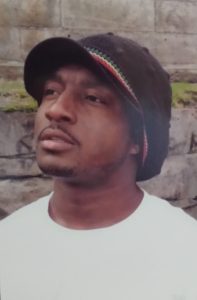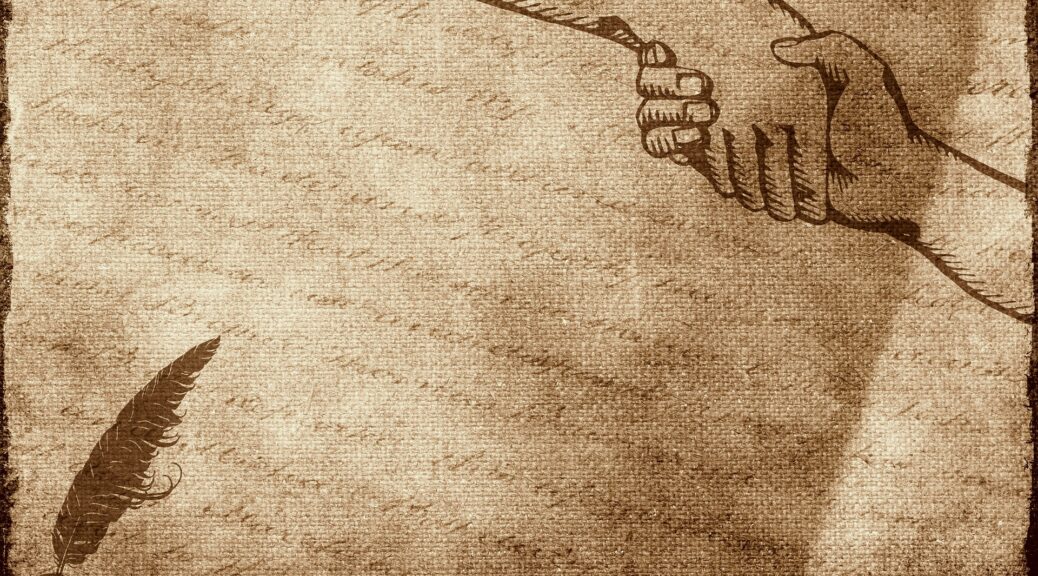Everyplace has a code of conduct, a pre-established format on how to behave, especially Death Row, where violating communal norms can have fatal consequences. And although I was surprised to learn when I arrived how clueless the men were to the accused crimes of one another, I soon learned it was a naivete woven from a thread of doubt that was necessary for us to coexist. Here on Death Row, we never discuss the crimes of others. Our spats are never armed with accusations. We share living space with men who have committed heinous acts and the courtesy between us is doubt. But what happens when the media airs coverage that shatters that doubt? What happens to courtesy when a vicious murderer is unveiled by his own admission? How do we come to terms with the visions of horror when there is no naivete behind which to hide? And what is the code of conduct when learning the person who is responsible is someone I’ve called a friend?
I first heard the rumor during my orientation to Death Row by a CO escorting me to the pod. He motioned toward a dark skinned man sitting alone at a table as we passed by a murky window. “See him? Watch out for that one there – he’s a serial killer.”
With questionable motives himself, I brushed off the warning as though it was merely a scare tactic. Either that or the CO was harboring a cold, vindictive grudge since his comment was dripping ice. I did, however, take notice of said ‘serial killer’, but I didn’t see a killer at all. No beady red eyes, twisted grin or drawing on the wall in his own blood – at least, that’s how I imagined a serial killer to look. This guy wore schoolboy glasses and had a quiet demeanor. He was husky and out-of-shape. It was not the infamous costume of a serial killer, but I decided to avoid him just in case.
Years passed before I ever said a word to the man and even then, it was mostly brief exchanges in passing. My observation of him was that he seemed knowledgeable about the world, well-respected, and typically kept to himself. The first time we ever had a greater interaction than that it was over a bet and got a bit tense.
“R. Kelly sings that shit!”
“I’m telling you man – it’s Aaron Hall.”
“Put $5 on it then.”
“Bet then mutha-fucka!”
We shouted opposing truths back and forth until he upped the bet to ten. I didn’t want to look like an idiot in front of everyone, so I agreed. I lost and paid the debt, but I felt manipulated by him raising the stakes. We didn’t speak again for over a year.
But one thing about proximity on Death Row, it forges bonds out of shared affliction. Many a friendship here is founded on empathy alone; some on familiarity. We began having casual talks, and over time, I found he was quite pleasurable to be around. He was thoughtful, soft-spoken, easy to engage, and never lost his temper. I felt petty for griping over a bet that I agreed to, and I discussed with him my point-of-view. He apologized and said he, too, was caught up in the moment. He’d bet to save face with the others. We were both trying to be liked in a place where likeability is relative to survival. We made our peace, shook hands with one another, and the two of us were friends ever since.
My friend, like myself, received visits frequently, and our loved ones became acquainted as well. My mother often asked about him, and I’d have great things to say. Occasionally, he stopped by the booth to wave hello. His name was mentioned regularly during conversations with my mom, but not once did we discuss the crime that brought him here. I told myself I didn’t care whether he was a serial killer – but maybe I just didn’t want to believe it.
Then came the Friday night that 20/20 aired its special coverage on his case. I felt like I was betraying my friendship simply by watching the episode. Did I even want to know? Was the element of doubt that was the glue to our friendship about to be dissolved? I decided that a friendship that hasn’t been tested is hardly a friendship at all.
From the moment the face of the first victim was shown, I was struck by the horrible reality. Such a sweet face and promising life snuffed out by a pair of hands wrapped around her throat. Then there was the girl’s mother whose tears and pleas made my own eyes blur with sympathy. I wasn’t thinking about forgiveness or reform for the killer – I was thinking somebody should pay.
Then came the face of another young woman that riddled me with guilt, her image penetrating me in a way that accused me of excusing her death. Then there was another face; and another, until the victim count was more than ten – all of them had been raped before having their lives squeezed from their bodies. The police had no leads, except the still-shot image of a man hunched over an ATM machine. It was grainy and distorted, but I’d recognize that hulking figure anywhere – it was my friend.
After his arrest, he confessed to the murders and gave a detailed account of his slaughter. The person sounded like my friend and looked like him, but it couldn’t be the man I knew. He was too thoughtful a person to want to hurt anybody, while the guy on TV was a monster. I kept trying to remind myself that people can change – but how does someone come back from that? Is there redemption after tying up the neck of a baby and leaving him for dead? If not, and we are forever judged by our past, then what would be the motivation to change?
Long after the show was off the air, the episode kept replaying in my head. I saw the women’s faces, heard their names, and re-lived hearing their families’ grief. Eleven women strangled, stabbed, even burned to death for no other reason than knowing the person I knew. Callous hands would cut down their future, choke away their dreams and desecrate a mother’s pride. And to think that I’d shaken those very same hands without consideration of the hurt they’d caused. I couldn’t help but feel I was committing a disservice to victims by befriending their murderer.
Suddenly, I was faced with two grappling concepts – justice and forgiveness. Many are taught to believe that by withholding forgiveness, we are perpetuating justice. But the perpetuation of anything is the opposite of justice, and forgiveness is a self-serving device. Different concepts that sit on the same end of the moral spectrum because there is not one without the other. I was taught that salvation comes after the worst thing we’ve ever done. I’m a believer in forgiveness, and no one is more deserving of justice than my friend’s victims.
There were two of the victims’ mothers and one sister who all said they’d forgiven him. However, one male cousin seemed consumed by the need for vengeance, vowed to petition for execution. Strength and resolve. Persistent anguish. How I admired one and pitied the other. Those women from whom everything had been taken were determined to take something of their own. Perpetuating the hate is a transfer of their power – by forgiving him, they took it back. It was the one defining moment throughout the entire segment in which justice felt truly served.
Now I know that I, too, must forgive the horrible things that were done. Forgiveness doesn’t mean excusing the wrong, but allowing him to pay. And allowing him to live to pay – that is the only justice.
ABOUT THE WRITER. Terry Robinson is a writer who is consistently thought provoking. In this essay he gives us a look into an experience most of us haven’t had, and will leave some readers questioning their own self-understanding.
Terry Robinson writes under the pen name Chanton. He is a member of the Board of Directors of WITS, and also facilitates a book club on NC’s Death Row. He is currently working on a work of fiction as well as his memoir, and he is co-author of Beneath Our Numbers: A Collaborative Memoir From Inside Mass Incarceration and also Inside: Voices from Death Row. Terry was also recently published in JSTOR, with his essay The Turnaround, and all of his WITS writing can be found here.
Terry Robinson has always maintained his innocence, and after a thorough review of his case, WITS firmly supports that assertion.

Terry can be contacted at:
Terry Robinson #0349019
Central Prison
P.O. Box 247
Phoenix, MD 21131
OR
textbehind.com
His writing can also be followed on Facebook and any messages left there will be forwarded to him.
![]()
